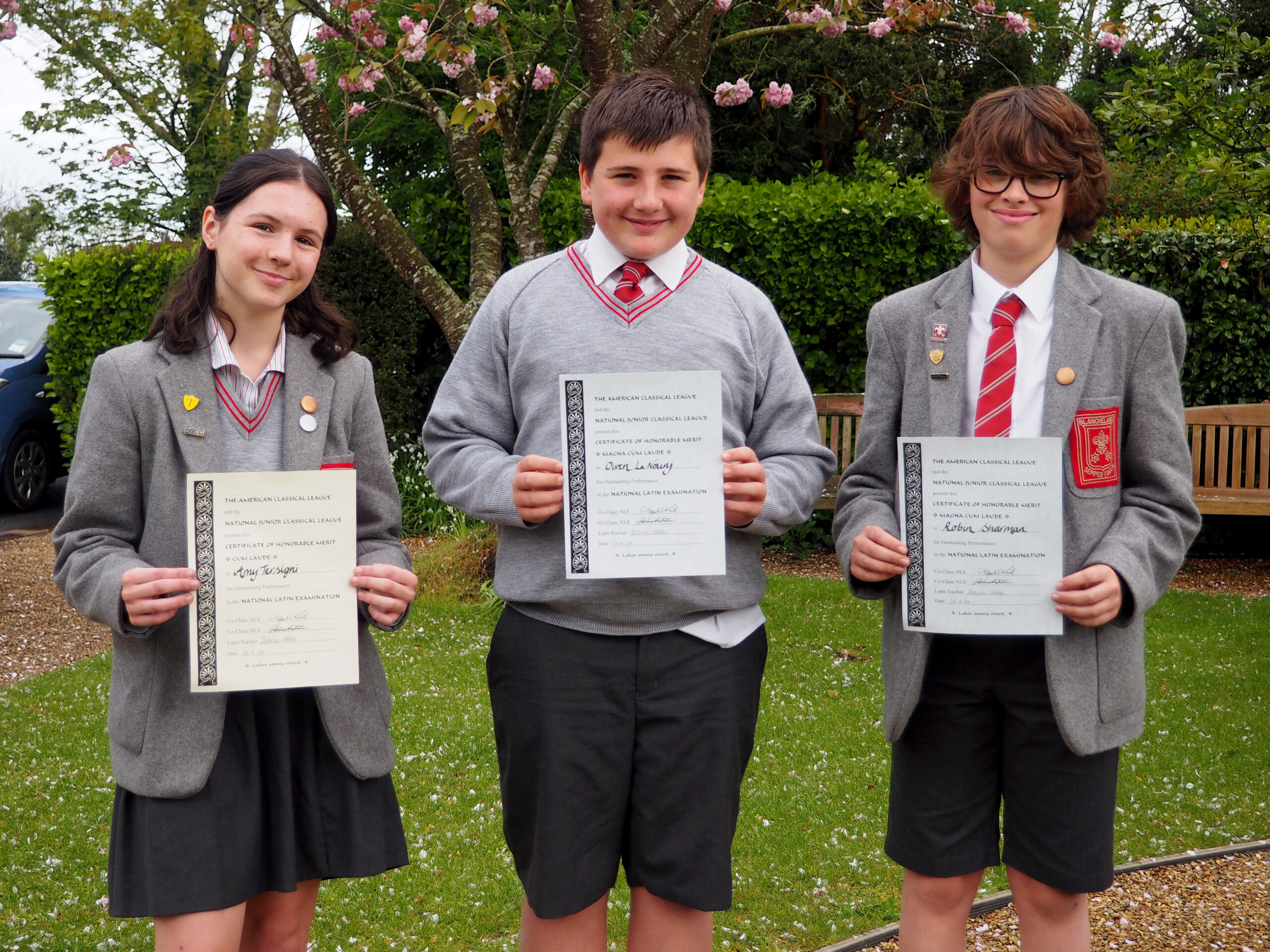Classics
Only the person who has questions can have real understanding. Examples of essential disciplinary questions that are vital to Classics at Blanchelande are:
Why do stories about the Greek gods and heroes still matter in our modern world?
How have the Ancient Greeks and Romans influenced the way we live today?
Why is Latin an eternal language?
Why learn a language that no-one speaks?
If everything that the Romans wrote has been translated into English, why bother learning to read Latin?
Far from being a ‘dead’ language, the legacy of Latin lives on in every aspect of modern-day life. The mother of the five Romance languages, it is the root of both French and Spanish, as well as of over half the English lexicon. Moreover, the Roman and Greek civilisations have provided the foundations of Western society, making its study more valuable than ever.
At Blanchelande, Classics is taught from Year 4 upwards, and Latin from Year 6 to GCSE. In our Primary school, pupils in Year 4 and 5 are taught about Roman society and the Latin language through learning about Vindolanda, a Roman fort by Hadrian’s Wall. The textbook is Minimus, which is renowned for bringing Latin and Classics into primary education.
From Year 6, our pupils move on to study Pompeii, seen through the eyes of Caecilius, a resident of Pompeii when Vesuvius erupted. We follow the Cambridge Latin Course, which provides a firm introduction to the structure of the Latin language, at the same time as providing a detailed insight into Roman life in the 1st Century AD.
Our GCSE course is based on the textbook ‘Latin to GCSE’ by John Taylor and Henry Cullen. We start the course in Year 9, and introduce set texts – including Virgil’s Aeneid – in Year 10. Small classes allow learning to be personal and targeted, as students learn the skills of parsing and literary appreciation of ancient texts.
Our Classics offering is supplemented by clubs in both the Primary and Senior school where junior pupils can explore Greek mythology, and senior students can learn the Ancient Greek language. Students are encouraged to enter competitions, including the National Latin Exam – an American multiple-choice exam which rewards study of both the Latin language and culture. There is also an annual Year 8 trip to the Bay of Naples, exploring Pompeii, Herculaneum, Capri and other Roman sites, as well as walking to the top of Vesuvius.


